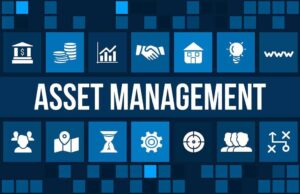Maintenance Audit and Site Inspection
Course Fee:
The objectives of the Maintenance Audit and Site Inspection course make the trainees to:
• Having insights about the market trends and developing skills to keep an eagle’s eye on the maintenance of the assets
• Understanding how the audit is related to the management of the assets and how it can help the organization improve its work to achieve its goal
• Conducting standardized site inspections for the company
• Comprehend the significance of the pre-audit and pre-inspection questionnaires
• Apprehending the working and application of the international standards such as ISO 55000 and PAS 55
• Learning how to interpret the results and develop a sound action plan for real improvements
• Effective audit and inspection techniques are used to fill up the gap between current performance and potential improvements
• Understanding all the theory-related concepts
• Starting with the basic and upgrading to the advanced level
• Comprehend the impact of the international standard on the inspection and audit
Course Content
All crucial topics and concepts that will be covered in the Maintenance Audit and Site Inspection course session are given below:
Introduction to the Maintenance Audit and Site Inspection
• What is a Maintenance Audit?
• What is Site Inspection?
• Difference between Audit and Inspection.
• Why each of these processes are needed?
• What are the benefits of the Maintenance audit and Site Inspection?
Types of Maintenance Audit
• Voluntary
• Internal
• Mandatory
• What happens in each of the types?
Activities in the Maintenance Audits
• Activities performed before the audit
• Activities performed “During the audit”
• Activities performed after the audit
• What is actually examined during the audit?
A Deep Dive into Maintenance Audit
• Maintenance Audit: A purely Business Process
• Landscape Model
• Framework Strategy
o Sightline
o Policy of managing assets
o Setting up goals
o Developing a plan
o Measuring the outcomes
o Feedback
o Improving
• Some practical tips
International Standards
• PAS 55
• ISO 55000
Risk and Maintenance Audit
• Risk Management
• Important concepts of the risk maintenance
• Engineering of the system: RAMS
• Principles of the whole life costing
• Management of the Workflow
• KPIs
• Improvement, people, and organization
Maintenance Auditing Techniques and Principles
• A basic flow from preparation to reporting (Principles)
• Process of the Audit
• Analysis of the Gap
• Benchmarking
Site Inspection
• Techniques for the better observation
• Physical inspection
• Space Entry (confined)
• Equipment lifting
• Scaffolding
• Working at high places
• Chemicals
• PIPE
• Work permit systems
• Ladders
• Fire Assessment
Emergency Types
• Auditing reports
• Internal
• Auditing emergency plans
• External
Safety Culture
• What is safety culture?
• Behavioral safety
• Some motivation: Maslow, Taylor, Herzberg, Gueller, Vroom
• ABC analysis
• Natural penalties
• Driving force of the behaviour
• Safety culture and auditing
Interpretation of the Results
• Setting up the goals
• Determining potential to improve
• Presenting work packages
• Showing the improvement plan
• Multi-criteria analysis
• Management change
Winding up with the workshop
• Sharing some real-world examples
• Marketplace Application
Methodology
The training methodology integrates lectures, interactive discussions, collaborative group exercises, and illustrative examples. Participants will acquire a blend of theoretical insights and hands-on practical experience, emphasizing the application of learned techniques. This approach ensures that attendees return to their professional environments equipped with both the competence and self-assurance to effectively implement the acquired skills in their responsibilities.
DATE:
1ST BATCH: 16th – 19th , Mar 2026
2ND BATCH: 7th – 10th Jul, 2026
3RD BATCH: 3rd- 6th Nov, 2026
Course Category
- Human Resource and Admin
- Finance and Accounting
- Internal Audit and Fraud Control
- Stores, Procurement and Supply Chain
- Information Technology
- Aviation and Maritime
- Banking, Investment and Insurance
- Business Communication
- Construction Management & Civil Engineering
- Engineering, Instrumentation and Maintenance
- Entrepreneurship and Business
- Hotel & Hospitality Management
- Law and Contract Management
- Management and Leadership
- Project Management
- Public Relations
- Public Sector
- Sales, Marketing & Customer Service
- Secretaries & Personal Assistants
- Transport & Logistics
- Security and Safety
More Courses
VENUE
25, Queen street, Alagomeji Bus Stop, Yaba, Lagos










